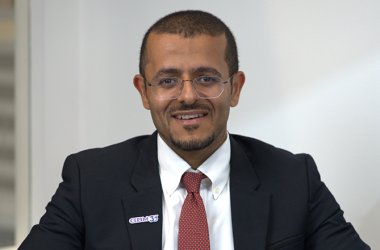CNME Editor Mark Forker, spoke to Mohit Bector, Commercial Head – UAE and GCC, at ASUS Business, to find out what the primary factors are behind their double-digit growth over the last 12 months, their success in industry verticals beyond education, such as the enterprise and public sector space – and the transformative impact AI is having on the global technology ecosystem.

How has ASUS performed during the first half of 2025 in the Middle East?
We’ve seen double-digit year-on-year growth in the Middle East, and 2025 is no exception. It’s a consistent momentum that was made possible with our expanding line-up of device solutions tailored for sectors that include education, government and enterprise.
Which sectors have seen significant growth so far?
As ASUS, we have been focused on the education vertical with a dedicated line-up, understanding the customer challenges and needs. Apart from education, the public sector and a few enterprise verticals have shown new logo acquisition-driven growth in the first half.
While the education and public sectors have been delivering consistently over the past few years, the enterprise sector push is largely due to our increased portfolio offerings.
We’ve also focused on delivering more Chromebook devices this year, as we forecast strong growth in this category over the next couple of years.
How do you see the role of ASUS evolving in the region as governments and businesses accelerate their digital agendas?
ASUS has been known for its focus on innovation. We aim to provide technology solutions that combine great functionality with real-world usability.
For our government and enterprise partners, this means offering products and services that are not only state-of-the-art but also reliable, scalable, and meet their long-term goals.
As digital transformation speeds up in the government and enterprise sectors, ASUS is ready to be a strategic partner. We provide the right technology, support, and innovative thinking needed to meet future demands.
How is ASUS supporting technology adoption among government organizations and enterprises in the region?
When it comes to our products, ASUS designs devices with durability and performance for businesses in mind.
Features like spill-resistant keyboards, military-grade testing, 100% solid capacitors, and modular, upgradeable components show our commitment to reliability and total cost of ownership.
These are important factors for public sector deployments and enterprise IT systems. In terms of service and support, ASUS provides up to 5 years of warranty, international warranty coverage, and reliable after-sales support.
These programs ensure continuity and responsiveness for organizations with critical operations.
How is ASUS building partnerships with public and private sector entities to drive innovation and long-term value?
On the innovation side, ASUS was one of the first to offer AI-powered computing solutions in collaboration with Intel.
This led to smarter and more efficient workflows in areas like education, healthcare, defense, and government administration.
Sustainability is also a key part of our strategy.
ASUS is dedicated to reaching carbon neutrality and net-zero emissions by 2050. We have already launched environmentally friendly product lines that focus on energy efficiency, recyclability, and sustainable materials. We also partner with government agencies on green tech initiatives to support national sustainability goals.
In your view, which sector has seen the most impact from AI adoption?
Here in the Middle East, especially in the UAE, we’ve seen AI become an integral part of most industries, and education has felt its impact most strongly.
AI is now the main driving force in delivering high-quality education in schools without being limited by physical infrastructure.
While AI as a subject has been made mandatory in UAE schools across grades, and more AI apps are being implemented in the learning curriculum, it is also imperative to have comprehensive training programs for teachers to ensure synergy in adopting this technology effectively.





